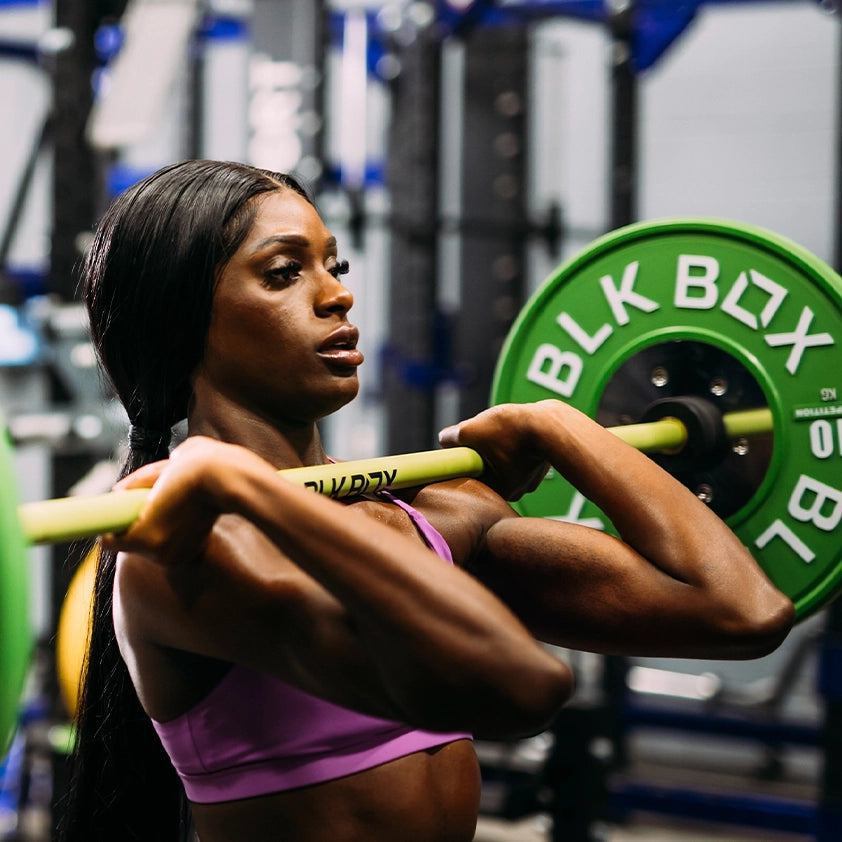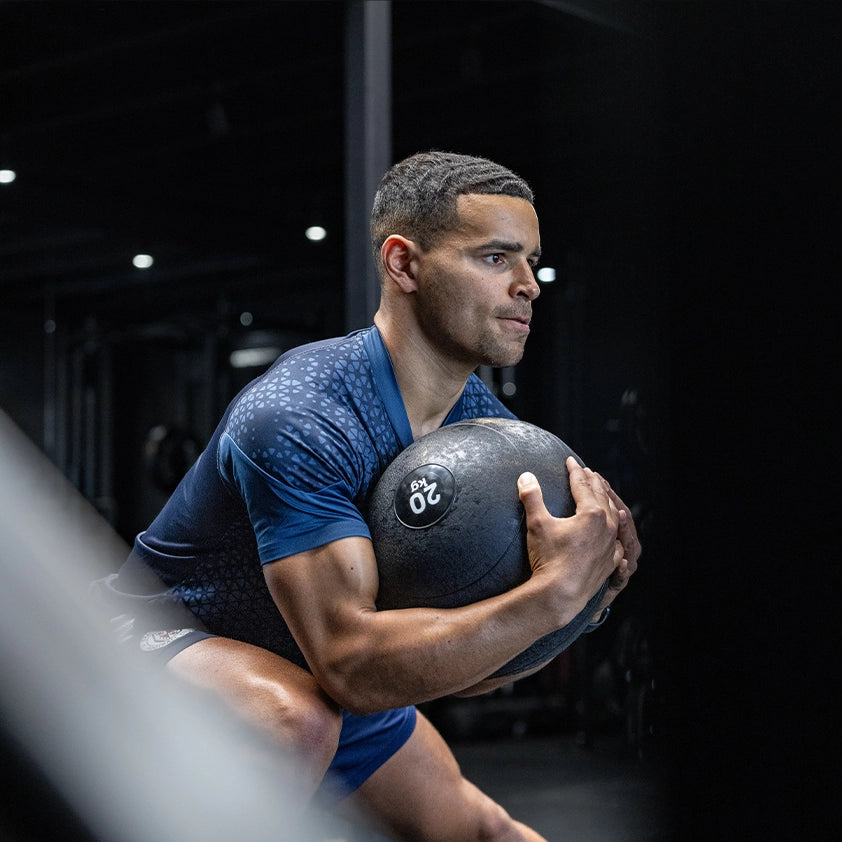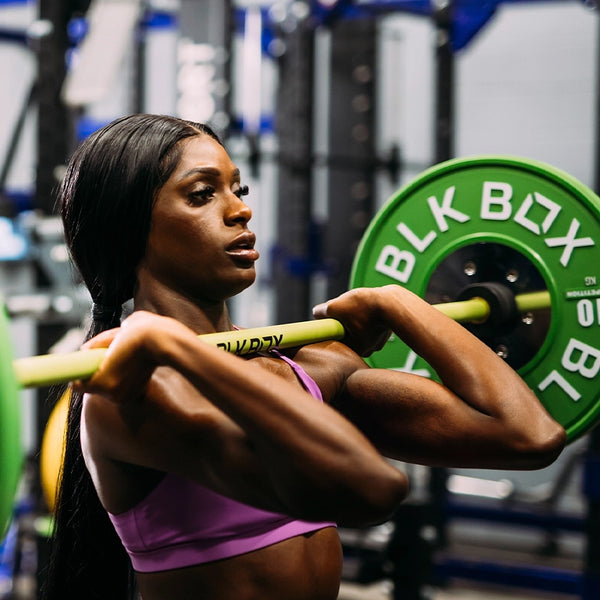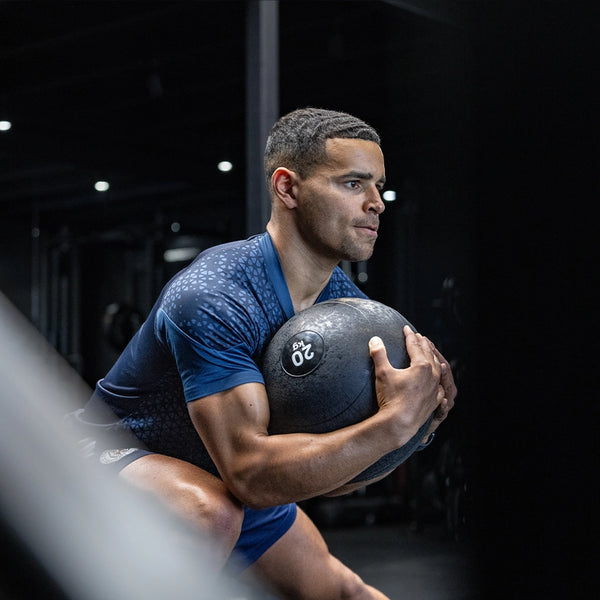Top 5 Habits For Successful Athletes
Athlete Habit #1: Resetting on your lifts…
It’s important to understand when you’re training Olympic Weightlifting and when you’re training CrossFit.
If you are doing complexes, double or triples in Olympic weightlifting, then you are doing that so it transfers across into your max lifts for the singles. Keeping hold of a bar and doing touch and go reps then has limited transfer over into a single max weight lift. Think about it. How many times have you seen and Olympic Weightlifter do a touch and go Snatch double? They will always drop the bar after rep 1, take a second to have the perfect set up and then hit rep 2.
This same principle applies to deadlifts and it’s variations (Snatch DL, Clean DL, Sumo DL). If you ever see yourself doing touch and go reps then take a look at your body position one rep 1 compared to rep 2. The position is different and not your usual set up position when lifting for a single rep.
So why do touch and go heavy Snatch DLs? You’re probably thinking for when I do barbell cycling.
OK, have a think about the weight when you actually cycle a barbell in a workout. How many times in a workout does it actually make sense to drop and opt for singles instead?
This is where you need to understand whether you’re training your Olympic Weightlifting or your CrossFit. When training your Olympic Weightlifting, channel your inner Weightlifter. Perfect and quality reps will results in better progression in technique and ultimately the weight.
Athlete Habits #2: Sleep
Something most of us know and have been told numerous times but how many actually stay disciplined with sleep times. Let’s say we need a minimum of 7 hours a night to get by and you have to be up at 7 am. Bed at 12 midnight?
Bed at 11:30 pm gives you 7:30 hours; an extra 3:30 hours per week and around 15 hours (2 nights) per month.
Bed at 11 pm and that’s 7 hours a week and 30 hours a month. 30 extra hours of sleep is 4 nights!
For those that have the luxury of going to bed at 9:30 pm and waking up at 7 am. That’s 9:30 hours a night. 17:30 hours of sleep more per week that if you went to bed at midnight. That’s 70 hours a month; a full week's worth of sleep!
We are fully aware some of you don’t have the luxury if undisrupted sleep or early wake ups but can you control the time you go to bed? Do you just stay up watching garbage on the TV or scrolling on your phone for the sake of it?
Try it. Go to sleep 30 minutes earlier tonight and grab yourself that #inch 😉
Athlete Habits #3 Negative Self Talk - In Training
One of the biggest things I notice in competitive athletes is the amount of negative talk or self-talk I witness. Let’s focus on self-talk in training and it impacts and then look at the effects in and leading up to the competition.
How many times do you feel like you have said the following to yourself or your training buddies:
"I’ve got no motivation for this session/workout" "This workout is gonna hurt" "I hate workouts like this” “I’m so sore today, I’m probably gonna snap under these cleans"... Or anything else along the same negative lines.
What effect does it have?
Saying one negative comment - one time only - probably isn’t going to have too much of an effect on your training performance. It’s the accumulative effect that regular comments and remarks will have. Getting in the subconscious habit of moaning, being negative about things you don’t like in training and generally giving off negative energy is one way to never become positive about the situation.
'The Law of Attraction’ is the belief that positive or negative thoughts bring positive or negative experiences into a person's life.
Not only does it embed a natural subconscious negative morale towards training, it starts to get infectious to your training partners. Then one day you might be feeling positive but get brought down because your training partners are expressing their negativity towards training that day. Great, now you’re all back to having negative voices circling your head.
Here’s a fun and very effective little way of getting any negativity for your training session out of the system. Give it a try!
Set up a stopwatch and have yourself and/or any training partners gather around the clock. When you press ‘start', you all have 30s (at the same time) to say as many negative comments as you want. Get everything off your chesty, let the session know how much you hate it, how sore you are, how much you aren’t feeling it and any other negativity that is at the front of your mind. Let it all out, f%cking shout it if it you need to. As soon as the clock hits 30, you hit ‘pause' and the comments stop. Then you press ‘reset’ on the clock and from that moment on, not a single negative word is said during the session. The ‘reset’ represents all those comments being deleted from your head. Don’t use this technique every single time, save it for if you really have the need to get something off your chest or you feel your training partners do.
Start feeling the benefits of positive self-talk, positive talk from your peers, see your performance and morale towards training gradually improve. Your training environment then starts to thrive with positivity and results. #Inches
Athlete Habits #4 Plan Your Training Week & Your Goals
Plenty of athletes fly headfirst into their week of training having only briefly scanned the week's training ahead. Not planning and picturing how the session and movements are going to go or setting goals for each session or parts of sessions that they have for each day.
Using Sunday to look at the training week ahead and set some goals can lead to building some great momentum. Giving you a much better understanding of yourself as an athlete, improving your training organisation and boosting your motivation to train as well.
After each session, record your results. This means that you can compare them against previous weeks of training and give you some scores to beat in the weeks coming if certain things are repeated. It's you against you.
Recording results make things tangible and for example, if you feel like training isn't going great or if you aren't feeling good then you can look back at previous results and actually see your progression. Or if your results aren't as good currently, you can then recognise why this might be, as you'll be able to see the exact point when things started to take a turn - rather than guessing.
Give yourself a head start. Look at the week's training ahead and set some goals. Train. Record your results. Build that momentum!
Athlete Habits #5 Negative self-talk & expectations - In competition
We previously spoke about the impact that negative self-talk can have on your training morale and attitude. We are all guilty of it at times but hopefully by making you more aware of it will help adjust your actions in the future.
Negative self-talk in the lead up to and during competition is just as common and potentially more damaging to your performance. In a world that is now so tuned in with social media, some athletes can get easily consumed about what others may think about their performance or the results they achieve. It is from this and the growth in spectators and media coverage at these competitions that adds pressure to the situation. Pressure not handled in the right way can build up negatively and create overwhelming stress for the competitor and the results that they achieve.
"How will others perceive my performance?""What will people think about me when they see how I have ranked?"
Sometimes, a lot of this expectation is all self accumulated. Your perception of how much people are judging your performance is often far greater than the actual perception that people who show interest in you have. Social media may play a big role here, but no doubt this feeling existed before social media was here.
You will see the pre-event comments of;
“The lead up hasn’t been brilliant, I strained my finger 8 weeks ago and I haven’t been able to train properly since” “The workouts don’t suit me so I’ll be happy to just complete it” “There’s a running event and I hate running”
Then we all know the post-competition summaries of how everything went wrong, this happened, that happened, nothing went my way etc. To me (@steveyf22), I see comments like this as a way that athletes already soften the blow to defeat or unsuccessful performance. They are subconsciously off-loading some of the expectations they feel is on their shoulders by talking themselves down before they have stepped foot on the competition floor. The seed has been sown.
It takes bravery to be able to admit to yourself and others that you have put everything you can into this event or competition. Defeat and/or unsuccessful performances are part of the sport. They often shape us to become better athletes further down the line. Defeat should be accepted, taken on the chin and reflected on - not avoided.
The negative pre-competition comments and comments during the competition weekend, open the door to submissive behaviour when you come across obstructions. An obstruction might be a set of no reps, a niggle or a new workout release that isn’t in your wheelhouse. How we deal with that obstruction comes down to the mindset we have in day to day training and in the lead up to the competition. A negative mindset may see an opportunity for a way out once they hit an obstruction. A positive mindset will find the best way around it to find the best way to complete the task at hand.
You can see now how months and months of subconscious negative talk in training can create habits within an athlete and the athletes surrounding them. How that may affect their day to day training performance and morale. How that transfers into dealing with the added stress building up in days before a competition. Then how that may affect the decisions made when they are needed the most - the competition floor.















